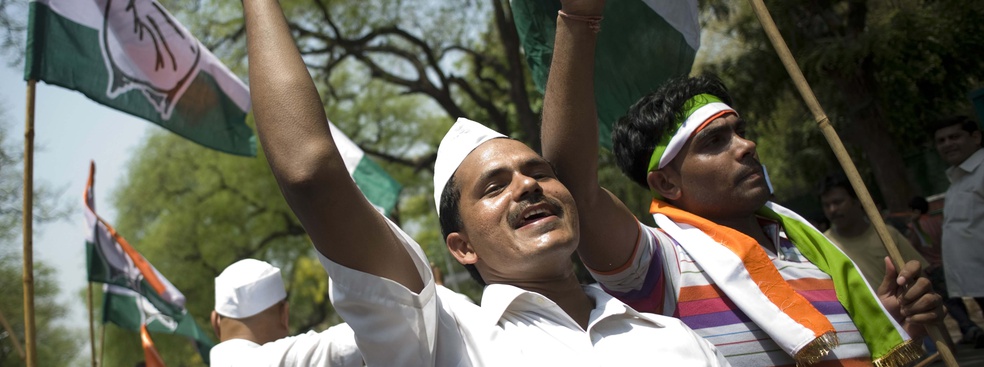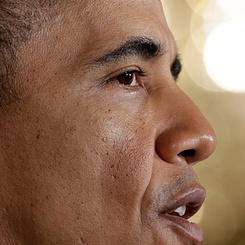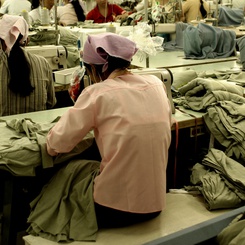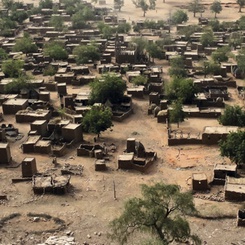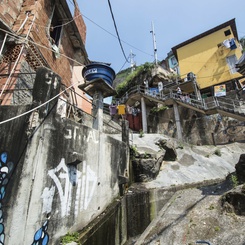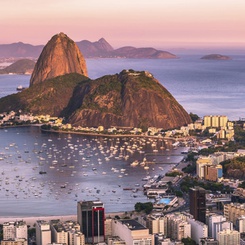Professor Ashok Som – who attended an electoral debate at the Indian Embassy in Paris this past Thursday – explains what hangs in the balance for any business leader with ties to the region.
These elections will be critical for the 814 Million registered Indian voters; of which150 Million are first time voters. With 1 Million voting booths, the elections will cost the exchequer some USD$300 billion, excluding the moneys spent by the hundreds of political parties as they woo the electorate. As election frenzy mounts and fatigue sets in after months of intense campaigning, it’s clear that this will be one of the world’s costliest elections, second only to the US 2012 electoral race.
A lot is at stake because India is looking for a change. Though the UPA in its last ten years has done extremely well in terms of numbers, the country is now eager for a new face that can reverse the economic slowdown and reign in the corruption that has plagued the country for the last few years. At this point though there are indications of a majority but there are no clear indication of how the majority will pan out – i.e. how close or how far will be largest coalition will come from the magic number of 272 that will give them an absolute majority.
For international business leaders, looking in from abroad, the results on May 12th will help them answer some key questions that underscore the implications of the Indian elections for international business:
Will the Indian Economy Be Able to Regain Momentum?
The Indian economy is already in a lot better shape than it was two years ago when panic began to grip the emerging markets and India was one of those fragile five economies who itself vulnerable to a run on their currency and on the stock market. At the time, the Indian government and the central bank acted very sensibly.
Still, many are hoping that out of the two leading political parties, the Bharatiya Janata Party (whose Prime Ministerial candidate is Narendra Modi) and the Indian National Congress (whose Chief Election Campaigner is Rahul Gandhi), the BJP with its allies will be able to boost the economy through their ties to big business. While still a controversial figure, Modi in particular is seen as a remedy for India’s woes, thanks to his reputation as a pro-business and an efficient administrator.
Indeed, the UPA II raised interest rates in the last year and put a ban on gold imports to control the current account deficit and these measures have helped the Indian economy stay more resilient. Today, the rupee is getting stronger, the stock market is booming, and people have cautiously begun investing, as they are still unsure about the political and legal environment. That uncertainty should be put to rest this May when the results of the election are declared and this is the reason businesses should be eagerly watching the results of this election.
Already, the run-up to the elections has been interesting: while the two main political parties mentioned above have tended to represent the elite, a new political party has emerged to represent the poorer classes, some of which are just beginning to come out of poverty. The Aam Aadmi Party (whose Chief Convenor is Arvind Kejriwal) was born from the India Against Corruption movement in 2012, is hardly 18 months old, but claims to support the “common man”. Indeed, in the Lok Sabha polls they fielded more candidates across the nation (426), than either the BJP (415) or the Congress (414). Rather than focusing on his strengths and his home base (Delhi NCR) and building on his administrative and political capabilities he went for a shot-gun approach for a quick impact across the nation.
So it will be very interesting to see how many seats the AAP ultimately win. That said, it is being proposed that the three queens, Mamata Banerjee (Chief Minister of West Bengal), Mayawati (ex-Chief Minister of Uttar Pradesh) and Jayalalithaa (Chief Minister from Tamil Nadu) can individually be the king-maker if all goes well in their respective states. It is believed that they may hold the three aces of coalition government.
How will these elections change the geopolitical landscape?
There is concern around the world about India’s foreign policy. Having a hung parliament in India, particularly over the last 10 years, has had serious geopolitical consequences. In additional, regional parties have a bigger that ever influence on India’s foreign policy, thus complicating domestic decision-making as well as bilateral relations. There is ample evidence that regional parties are exerting influence on foreign policy, especially with India’s neighbors (such as Bangladesh, Pakistan and Sri Lanka). India has supported Afghanistan. It silently supported Russia, its long term friend and ally, when the G7 countries excluded Russia after its involvement with the Crimea in Ukraine. India has forged alliances in different sectors with Japan while increasing its bilateral discourse with China.
It’s clear that whoever comes out on top in these most recent elections will need to rethink foreign policy. And this will need to be done with care as India becomes the next growth market after China in Asia.
What will the Indian elections means for India’s traditional economic partners?
Modi seems to be getting attention for his pro-development economic agenda. On foreign policy and other policy issues he is still considered somewhat of a mystery as the BJP has not published their election manifesto yet. But traditional economic alliances also hang in the balance. For example, India is the highest importer of arms. India is an important business partner for France, UK, USA, Russia, Israel and others. Recently, Dassault of France, has been shortlisted for supplying 126 multi-role medium combat Rafale aircraft at a price estimated at $20bn. The decision to go forward has been postponed for the 2015 financial year. In the meantime Russia exported $4.78 billion worth of arms and military equipment to India in 2013 which is about one-third of Russia’s total export of arms. Rosneft, the world's top listed oil producer by output, may join forces with Indian state-run Oil and Natural Gas Corp to supply oil to India over the long term; the Russian state-controlled company issued a statement in March 2014, just before the election. On the other hand companies like Walmart of USA, Carrefour of France are waiting to understand the implications and the implementation issues of the policy of multi-brand retail in the country. This industry is estimated at $500 Billion. The numbers are large. These are decisions dependent on the outcome of the elections.
What Indian election means for technology innovation?
There are three fundamental technologies that will make India more and more complex to manage and at the same time will create opportunities. To manage both the challenges and the opportunities, advisors to the new government have to create long term policies on innovation platforms. The first implication will be on dissemination of information through internet, communication paradigm and mobility. The second implication will be increasing the life expectancy through research in biotech, nano-tech, stem-cell research, drug discovery which will have implication on education, nutrition and health. The third implication will be on sustainable energy, sourcing and dissemination of that energy. The world will have to wait for one more month to see how the country of 1.2bn decides on the government which will act on these policies that will affect, in one way or another, the whole world.
What will the results mean for the Indian Diaspora?
The Indian diaspora has made a major contribution to the economies of countries like Britain and the US and increasingly in Asia-Pacific region. Since the 1990s, the Indian government has been trying to entice them back home, and thousands returned during the boom years of the 2000s. The numbers returning slowed down when the Indian economy slumped after the global financial crisis, but a pick-up in India’s fortunes could see the numbers growing. Modi regularly makes televised speeches to Indians living in the US. As the chief minister of Gujarat, he has successfully courted Non-Resident Indians to invest in Gujarat. Gujarati NRIs have funded a large number of public works in Modi’s state. Other states have tried this model with lesser success. The election results may witness a change in the overall mobility of the Indian diaspora across industries and across nations.
